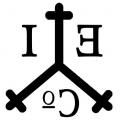Anyone involved in any serious forecasting of politics or other social disciplines must have, read, and use this book. Rather than an etherial, academic reflection on why analysis is relevant, or 'what is the role of intelligence analysis', or a mathmatical treatise on Games and Decisions, this is a working reference and practical guide to structured analytical techniques. Although the title specifies "for intelligence analysis", the methodology is applicable to problem sets that are only partially or non-quantifiable, and especially applicable to issues that are ambiguous and where only incomplete information is available.
In many ways, this is the sequel to Psychology of Intelligence Analysis, also by Richard Heuer. Where "Psychology of Intelligence Analysis" focused on analytical biases, with a limited discussion of rigorous approaches to intelligence analysis, "Structured Analytic Techniques" approaches similar issues from a more pragmatic direction. As valuable as the discussion of cognative biases is, the comprehensive set of analystical tools in "Structured Analytic Techniques" does more (when applied) to mitigate many of the biases than mere knowledge of their existance, and the analytical techniques will counteract many biases, even when those biases have not been identified.
Of particular interest is the emphasis on analytical teams and group analysis, both the strengths and weaknesses, and methods for maximizing the strengths and mitigating the weaknesses. (from Amazon reviewer, E.M. Van Court)







Bookmarks